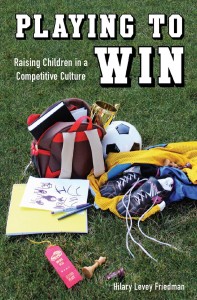As my friend and scholar/writer Margarita Mooney likes to say, "Books have long lives." While Playing to Win is still less than a year old, I can see how this is true as the book continues to inspire questions, dialogue, and conversations in a variety of settings. In the past two months I've been lucky to speak (in person, in writing, virtually, and in the media) to a range of people who are interested in the topic of kids and competition including parents, students (undergraduate and graduate), and professors.

One of the questions brought up by almost every audience I address is the issue of inequality-- a hot topic these days beyond Piketty's recent work. The issue of educational inequality and how afterschool activities can lead to the unequal distribution of competitive/cultural capital among kids is one I have talked about before. These activities can be transformative for kids in multiple ways, and class is one of them. They can also offer opportunities to be exposed to new people and experiences.
This is one of the reasons I fell in love with scholastic chess while researching Playing to Win. Chess is diverse, as close to democratic as an activity can get, and a challenge. It promotes sportsmanship, logic, and long-term thinking. What is not to love? While I still can't really play, I got into the world of chess, even reading Chess Life and Chess Life for Kids each month, so having a two-page review of the book in Chess Life was a real thrill. The reviewer brought up some excellent points, but I had to take issue with the presentation of some of the numbers and explain that I absolutely value chess' diversity. Thankfully, the editors published my full response in a recent issue-- proof that dialogue continues and conversations on these important topics are ongoing!
Now I just need to get Carston playing with the pawns soon, hopefully in the next few months...